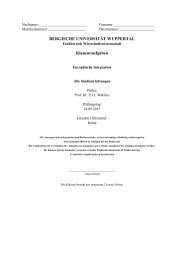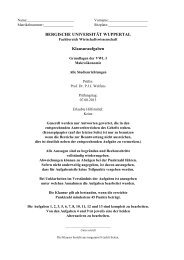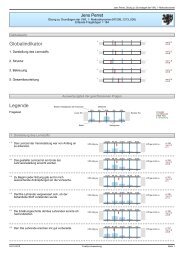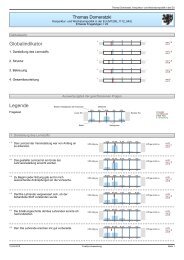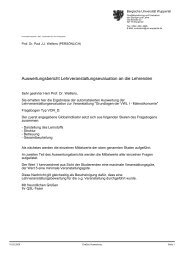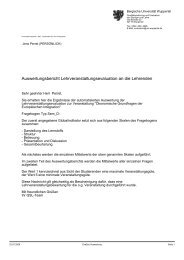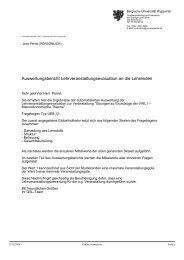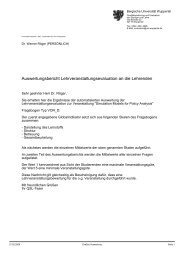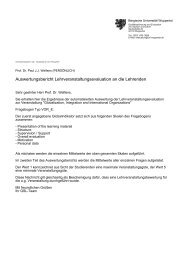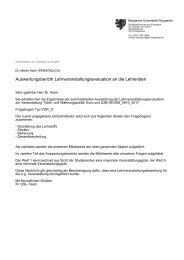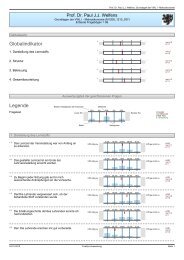UNIVERSITÄT POTSDAM - Prof. Dr. Paul JJ Welfens
UNIVERSITÄT POTSDAM - Prof. Dr. Paul JJ Welfens
UNIVERSITÄT POTSDAM - Prof. Dr. Paul JJ Welfens
You also want an ePaper? Increase the reach of your titles
YUMPU automatically turns print PDFs into web optimized ePapers that Google loves.
1. Telecommunications, the Internet and Transatlantic Growth Differentials<br />
1.1 Telecommunications and the Internet<br />
Technological progress and deregulation plus privatization have stimulated the growth<br />
of the internet which can be used in many ways, including for international and national<br />
telephony based on the internet protocol (IP); voice-over-IP is most interesting<br />
for cable TV firms which thereby could become powerful telecommunications firms,<br />
too. About $ 1 billion was spent in 2000 on voice-over-IP services with some $ 6 billion<br />
expected for 2005 worldwide; an upgraded cable TV network is the basis for<br />
AT&T’s roughly 0.7 million local telephony users which still is less than 1/200 of circuit-switched<br />
lines in the US. However, in the long term IP calls running over a private<br />
data network – instead of low quality public internet networks – could become a fast<br />
growing business in the United States (US) and elsewhere.<br />
The internet in both the US and Europe is rather unregulated at the beginning of<br />
the 21st century, but telecommunications is regulated on both sides of the Atlantic – an<br />
indirect incentive for internet services to expand. To the extent that Internet Service<br />
Providers (ISPs) and end users need access to the fixed-line network, telecommunications<br />
regulations will affect the internet business (WELFENS, 2001a).<br />
Technically, the internet differs from telecommunications; the latter establishes<br />
a dedicated line between two partners, whereas internet traffic consists of data packages<br />
which are split over several lines and recombined at the end so that the recipient<br />
will get the data from the sender. Internet business is largely based on computer networks.<br />
From this perspective the growth of the internet is crucial for the hardware and<br />
software industry. Given the dominance of the US in the hardware and software market,<br />
the developments in the huge US markets are of particular relevance.<br />
Deregulation in the US and Europe<br />
Following the divesture of AT&T in 1984 the US has had competition in long distance<br />
telephony, while the local loop remained in the hand of the newly created “Baby Bells”<br />
which were hived-off the old AT&T (SCHWARTZ, 1997; SPINDLER, 1999). Until<br />
the Telecommunications Act of 1996 cable TV firms and telecommunication operators<br />
were not allowed to compete, but with the digitization of telecommunications and TV<br />
this restriction became obsolete in technical terms. The Telecommunications Act therefore<br />
removed the legal market demarcations; moreover, it allowed long distance companies<br />
to enter the local loop, while regional Bell companies were allowed to enter the<br />
long distance market provided that they had opened the market for local telephony.<br />
1



